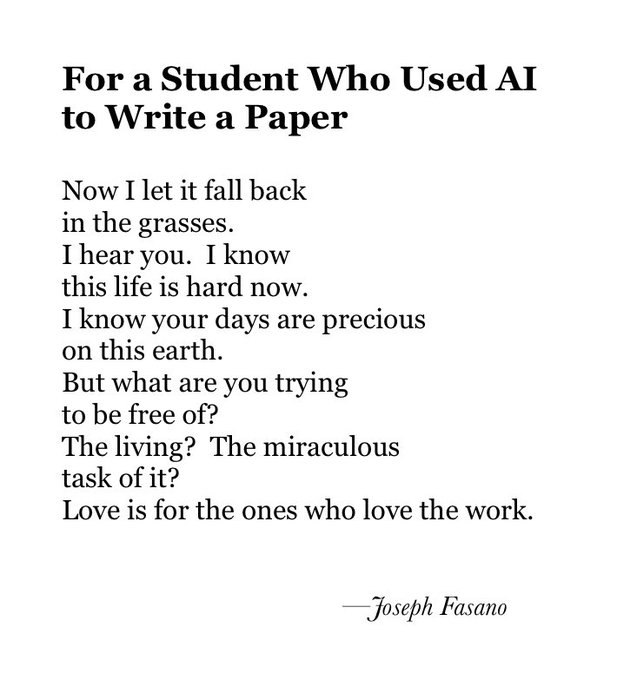
Accessibility
Language of accessibility policy from Flora de Tournay’s Writing About Writing class OER
Access is a cornerstone of this course’s design and your needs are of the utmost importance to me. Let’s hold space for physical disabilities, mental & emotional health, neurodivergence, illness, injury, grief & loss, and any other needs that I haven’t listed. Let me know how I can best support you and your learning.
If you need support in this or other classes, please reach out to the office of Special Services for Students with Disabilities via email at [email protected]. I’m also happy to help you navigate this process. Additionally, mental health services are available to all students via the Counseling, Health & Wellness Center, which offers confidential peer support and counseling for free.
Attendance
I do not have a formal attendance policy for this class (i.e., as soon as you miss three classes you fail). Attendance counts towards your participation grade, and as such the quality of your work in-class and with classmates is more important than just showing up.
Your health and your family’s health should be your priority. If you are dealing with illness, sick family members, quarantine or isolation, a bad internet connection, increased anxiety, child care challenges, or any other issues, please reach out and we will figure out accommodations.
If some aspect of this class is not working for you, as long as your communications are clear and timely we can and will work together to find a solution.
Late work
In line with the above Attendance Policy, I am super flexible if life happens and you need an extension on any assignment. There is no official grade penalty for late work or missed deadlines. I only require you to notify me by email as soon as you know you need accommodation.
If the due date passes: We can still work together to coordinate submission of work, but as more time goes by the less flexible I can be with grading and even submission. You may lose points the longer work remains unsubmitted with no explanation, or I may decide not to accept the work if it’s late enough in the semester. Email me early on! I want you to succeed.
I will not be sending regular reminders to submit outstanding work. You are responsible for keeping your own calendar.
Office hours
As an adjunct, I do not have an office! As such, office hours are by appointment only.
Please use this booking tool (has my up-to-date calendar availability). Please make sure to include your name, preferred meeting modality, and a brief (couple words, one sentence) reason for meeting. If I can’t meet in the booked time, I will send you a revise request.
Modalities available:
– phone call
– zoom
– in-person (I do work for Queens College and am on campus from Monday through Friday)
Topics I would love to talk to you about:
– this class: lecture topics, practicum experience, etc.
– assignments: both to give clarity about upcoming assignments and to provide detailed feedback on submitted ones.
– archives: articles you’re reading, ideas you’re ruminating on, conferences you attended, projects you’re planning.
– jobs: the professional field, networking, advice on resumes/cover letters
Plagiarism and academic integrity
The Policy on Academic Integrity, as adopted by the CUNY Board is available to all candidates. Academic Dishonesty is prohibited in The City University of New York and is punishable by penalties, including failing grades, suspension, and expulsion.
This policy and others related to candidates’ issues is available for you to read on CUNY’s Academic Integrity page.

Recording and photography in the classroom
Adopted at Queens College Academic Senate Meeting, November 14, 2024.
Neither photographs nor recordings (audio or video) of all or parts of classes at Queens College may be made without written permission from the course instructor(s).
The Office of Student Affairs and the Office of Special Services may provide for the recording of classes on behalf of a student receiving disability accommodations, missing class due to religious beliefs, or experiencing extended absence due to medical or other exigent circumstances.
The Queens College Classroom Photography and Recording Policy applies to both students and visitors. Students and visitors are not authorized to copy, download, or disseminate authorized recordings and photographs to others. Students in violation of this policy are subject to disciplinary action, and visitors in violation of this policy are subject to removal from the classroom and/or campus.
Respect
Language of respect policy from Guidelines for Classroom Civility and Respect at University of Massachusetts Amherst
Learning and the exchange of ideas may take place in many settings, including the formal classroom. When students and faculty come together, the expectation is always that mutual respect and civility will prevail to ensure that every student has the optimum opportunity to learn and that each faculty member has the best opportunity to teach. Disruptions of any kind affect the atmosphere of civility that is expected and interfere with the opportunity for learning and growth to which both faculty and students are entitled.
Differences of opinions or concerns related to the class should be welcomed if presented in a mutually respectful manner. The challenging of viewpoints is part of the academic experience, but should occur in a manner that opens up dialogue and does not threaten any member of the learning community.
Student behavior or speech that disrupts the instructional setting or is clearly disrespectful of the instructor or fellow students will not be tolerated. Disruptive conduct may include, but is not limited to:
– rude or disrespectful behavior
– unwarranted interruptions
– failure to adhere to instructor’s directions
– vulgar or obscene language, slurs, or other forms of intimidation
– physically or verbally abusive behavior
Writing
Language of writing policy adapted from the Illinois Writers Workshop’s College-Level Academic Writing Expectations
Language and literacy development is a process that takes time and practice, involves adapting to new contexts, and is individualized and nonlinear. Literacy skills—speaking, listening, reading, and writing—may develop at different rates. All students encounter challenges as they acquire advanced academic literacy proficiency due to its complexity and contextual variation. While academic discourse shifts across disciplinary contexts, there are some generalizable features to U.S. academic writing.
Most academic writing in the United States demonstrates features of writer-responsible texts (Hinds, 1987). In writer-responsible texts, the writer takes on responsibility for clearly and concisely conveying ideas to a reader: readers expect writers to do the heavy-lifting. As such, writer-responsible text should demonstrate the following three qualities:
– Unity: all elements of the text contribute to communicating a central idea
– Coherence: all elements of the text are linked and follow a recognizable organizational pattern (e.g., general information to specific, cause to effect, question to answer
– Emphasis: the main points of a text are adequately developed and organized according to their importance

